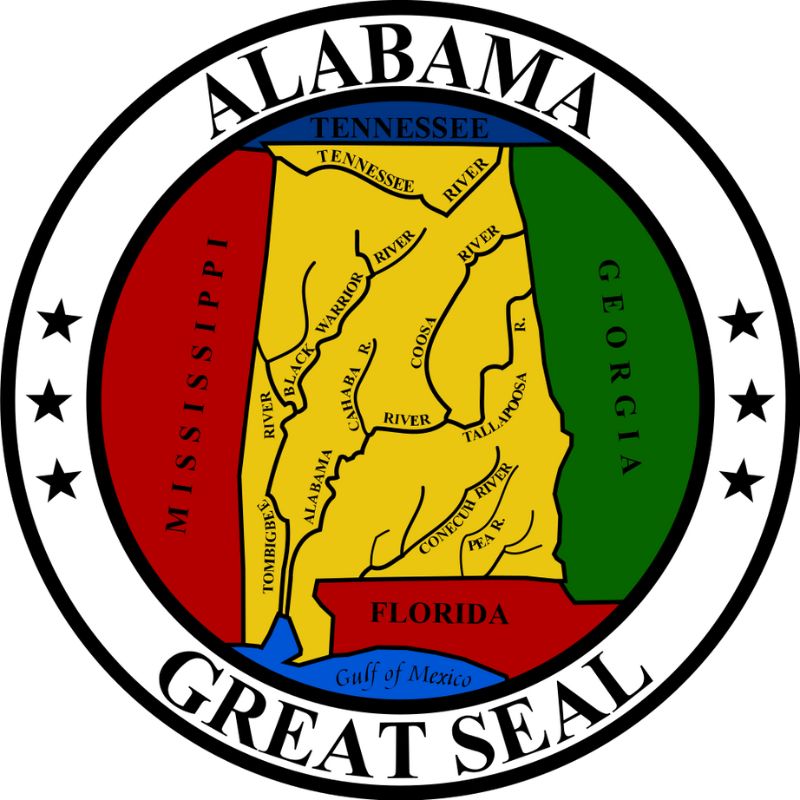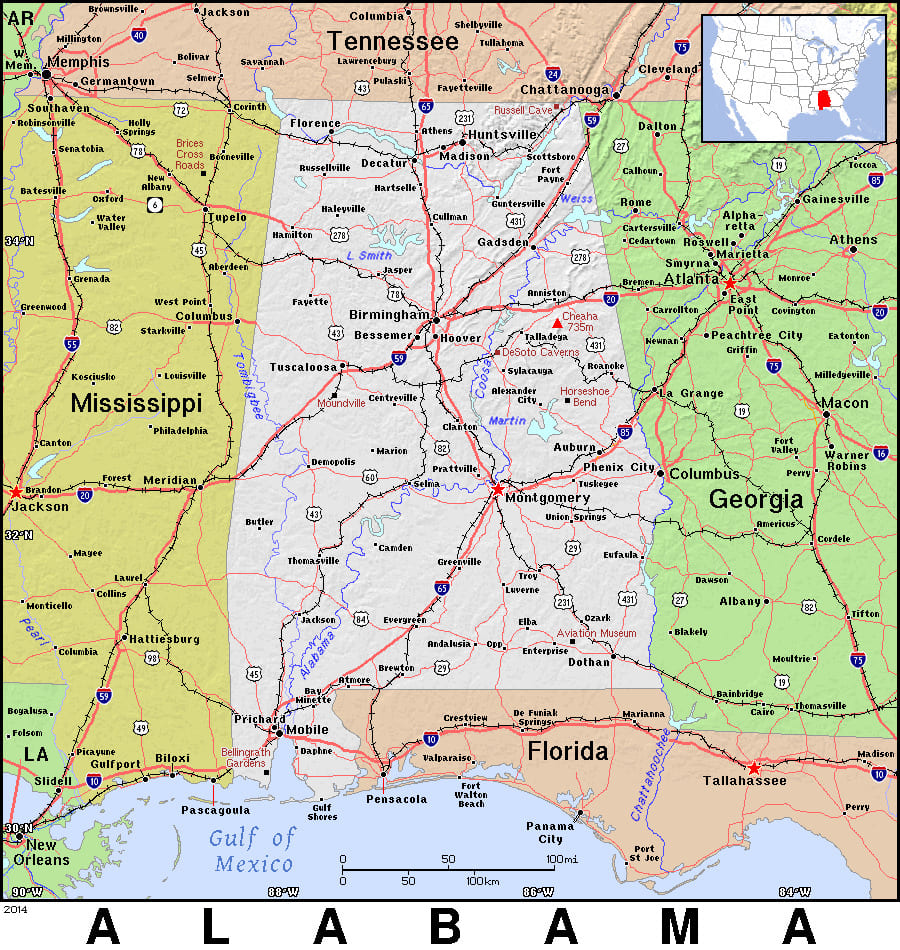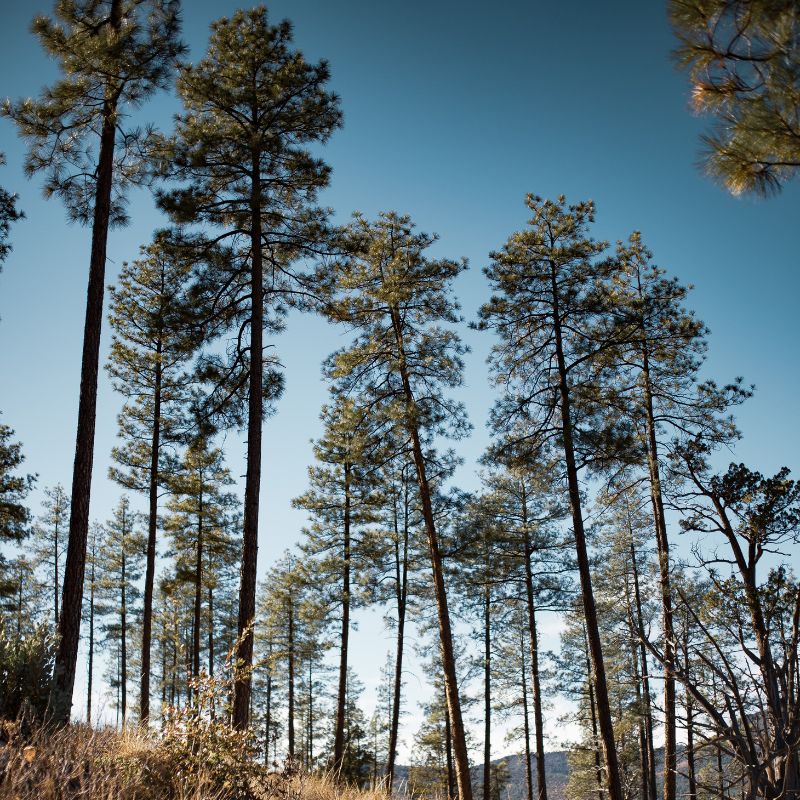Explore the Fascinating History of Alabama
Take our Alabama Trivia Quizzes for a Chance to Win a 6-Month Subscription to History By Mail!

The History of Alabama
Journey Through Alabama Trivia
Welcome to our Alabama Trivia and History Hub, proudly presented by History By Mail. Join us as we embark on an enlightening journey through the rich past and cultural diversity of the Yellowhammer State. From pivotal moments in the Civil Rights Movement to the birthplace of jazz, we'll delve into Alabama's hidden gems and put your knowledge to the test with entertaining quizzes. Let's immerse ourselves in the captivating world of Alabama's history and trivia together.
The State of Alabama is an enchanting place with a storied history and a unique blend of cultures. From its indigenous peoples and early European explorers to pivotal moments in the Civil Rights Movement and the birth of iconic musicians, Alabama has left an indelible mark on the tapestry of American history. Today, the state boasts breathtaking natural landscapes, thriving cities, and warm-hearted inhabitants.
Facts about Alabama
State Name: Alabama
State Abbreviation: AL
Capital: Montgomery
Name Origin: The state’s name comes from the Alabama tribe, one of the Native American groups from that area.
Nickname: The Heart of Dixie
Statehood: December 14, 1819 (22nd State)
State Motto: "Audemus jura nostra defendere," which is Latin for "We dare defend our rights."
Alabama's Flag
The Alabama state flag was officially adopted in 1895 and showcases a crimson St. Andrew's cross on a white field. The design pays homage to the Confederate Battle Flag, also known as the "Southern Cross." The crimson color signifies the valor and bravery of Alabama's soldiers who fought during the Civil War. This distinctive flag proudly represents Alabama's history and values.
Alabama's Great Seal
In contrast to many states, Alabama possesses a seal that notably diverges from its coat of arms. The present seal had been utilized before 1868, subsequently replaced by a different rendition. The original design was reinstated in 1939 by legislation. It showcases a map of the state featuring its major rivers distinctly outlined. This seal commemorates the historical significance of Alabama's river networks. The periphery of the seal is adorned with the inscriptions "Alabama" and "Great Seal."

--- State Trivia #1 ---
History of Alabama
Alabama's history stretches back more than 10,000 years when the area was inhabited by various Native American tribes such as the Cherokee, Chickasaw, Choctaw, and Creek. Russell Cave served as a dwelling place for early inhabitants. Despite the forced removal of many Native Americans in the 1800s, some descendants of these tribes still call Alabama home today. Over the centuries, Alabama experienced the influence of different European powers. Spanish explorers arrived in the 1500s, followed by periods of English, French, and Spanish control. Ultimately, in the 1795 Treaty of San Lorenzo, Alabama, along with what is now Mississippi, was transferred to the United States. Alabama officially became a state in 1819 and later seceded from the Union during the Civil War. After the war, the state rejoined the United States.
In the mid-20th century, Alabama played a significant role in the civil rights movement. In 1955, Rosa Parks' courageous act of refusing to give up her bus seat to a white man in Montgomery sparked a wave of protests against racial segregation. Many of these demonstrations were led by prominent civil rights leader Martin Luther King, Jr. Alabama became a pivotal battleground for the fight for equal rights, leaving an indelible mark on the history of the United States.
State Symbols
Fun Facts
- Alabama is known as the "Heart of Dixie" and is located in the southeastern region of the United States. Its name is derived from a Native American tribe called the Alabama or Alibamu.
- Alabama is home to the birthplace of Helen Keller, a renowned author, political activist, and lecturer. Her childhood home, known as Ivy Green, is now a museum dedicated to her life and accomplishments.
- The world-famous Mardi Gras celebration is not exclusive to New Orleans. Mobile, Alabama, actually claims to be the birthplace of Mardi Gras in the United States. The city has been hosting extravagant parades and festivities since 1703.
- Located in Talladega, Alabama, this NASCAR track is famous for its high-speed racing. It's one of the longest and fastest racetracks in the world.
- The U.S. Space & Rocket Center, located in Huntsville, Alabama, is one of the world's largest space museums. It showcases an impressive collection of space artifacts and exhibits, including the Saturn V rocket, which propelled the Apollo missions to the Moon.
--- State Trivia #2 ---

Things To Do in Alabama
- Explore Gulf Shores: Located along the stunning Gulf Coast, Gulf Shores offers pristine white sandy beaches, crystal-clear waters, and an array of outdoor activities. Visitors can swim, sunbathe, go fishing, or try water sports like kayaking and paddleboarding.
- Discover the U.S. Space & Rocket Center: Located in Huntsville, the U.S. Space & Rocket Center is a must-visit attraction for space enthusiasts. It features interactive exhibits, space artifacts, and even full-scale replicas of rockets and space shuttles.
- Tour the Civil Rights Trail: Alabama played a significant role in the Civil Rights Movement. Explore historic landmarks such as the Birmingham Civil Rights Institute, Dexter Avenue King Memorial Baptist Church in Montgomery, and the Edmund Pettus Bridge in Selma.
- Visit Oak Mountain State Park: Located near Birmingham, Oak Mountain State Park offers a wealth of outdoor activities. Visitors can go hiking, mountain biking, fishing, camping, and even horseback riding in this expansive park.
- Experience the Mobile Carnival Museum: Mobile is home to a vibrant Mardi Gras tradition. The Mobile Carnival Museum showcases the history and pageantry of this festive celebration with colorful displays, costumes, and interactive exhibits.

General Map of Alabama
Alabama, known as the Yellowhammer State, is located in the southeastern United States. It features a diverse geography, with stunning Gulf Coast beaches, rolling hills, fertile plains, and the majestic Appalachian Mountains in the northeast.
Famous People From Alabama
--- State Trivia #3 ---
FREQUENTLY ASKED QUESTIONS (FAQ) ABOUT ALABAMA
Alabama is known as the "Heart of Dixie." The nickname reflects the state's location in the Deep South, which was often referred to as the "Dixie" region during the Civil War era.
Alabama officially became the 22nd state of the United States on December 14, 1819.
The Alabama state flag features a crimson St. Andrew's cross on a white field, paying homage to the Confederate Battle Flag.
Alabama played a pivotal role in the Civil Rights Movement. Important events include Rosa Parks' protest in Montgomery, the Selma to Montgomery marches, and Martin Luther King, Jr.'s leadership in the fight for equal rights.
Related Resources
- Official Website of the State of Alabama: The official website provides information about the state government, tourism, history, and more. Visit: https://www.alabama.gov/
- Alabama Department of Tourism: Explore Alabama's attractions, events, outdoor activities, and plan your trip. Visit: https://tourism.alabama.gov/
- Alabama Historical Commission: Learn about Alabama's rich history, historic sites, preservation efforts, and educational resources. Visit: https://ahc.alabama.gov/
- Alabama Department of Conservation and Natural Resources: Discover Alabama's diverse natural resources, state parks, trails, wildlife, and conservation initiatives. Visit: https://www.outdooralabama.com/
- Alabama Civil Rights Trail: Explore significant landmarks and sites related to the Civil Rights Movement in Alabama. Visit: https://www.alabama.travel/civil-rights
- Alabama Music Hall of Fame: Learn about Alabama's rich musical heritage and discover renowned musicians from the state. Visit: http://www.alamhof.org/




